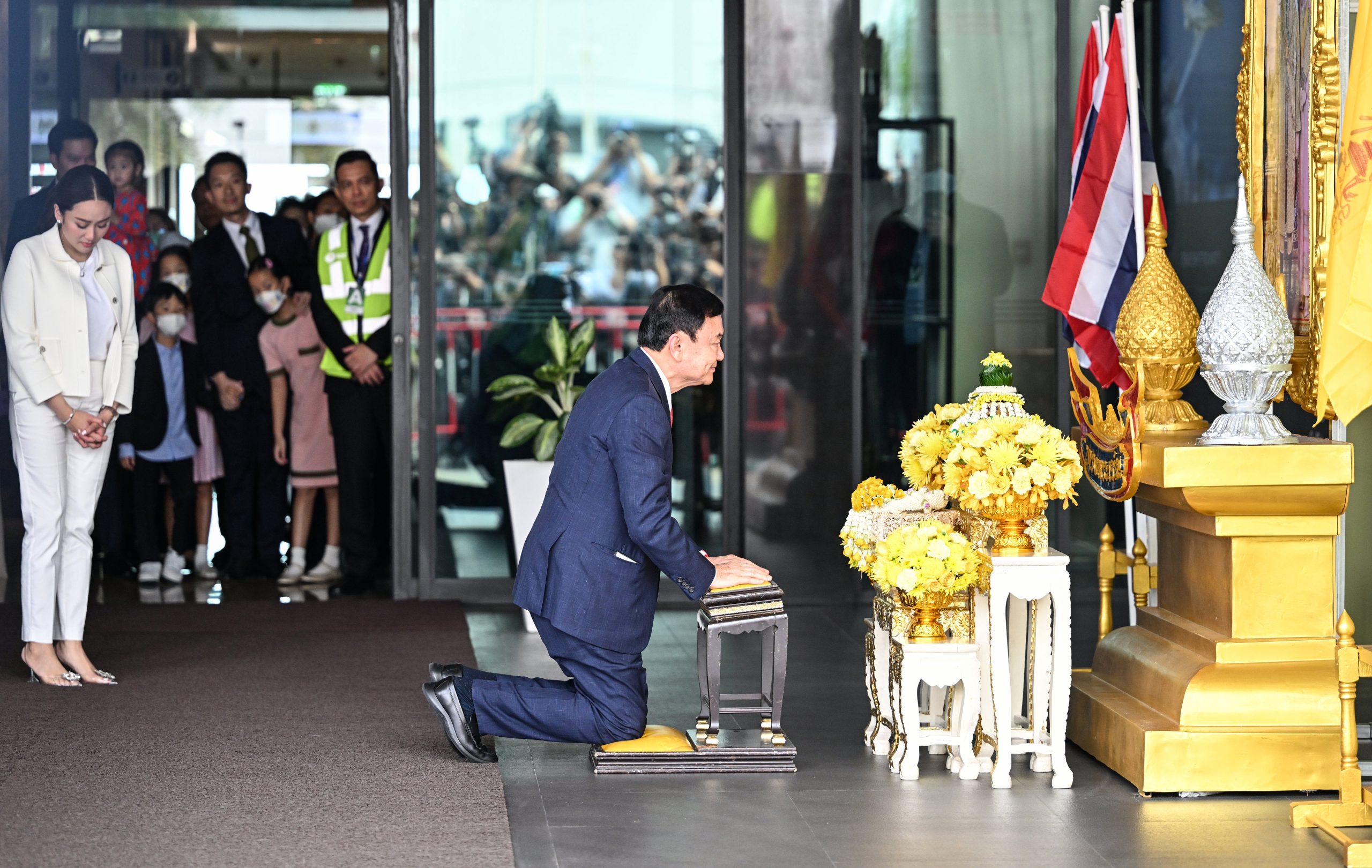
Even by Thailand’s topsy-turvy standards, the past two days have been a political whirlwind.
The dramatic homecoming of billionaire ex-leader Thaksin Shinawatra after 15 years in exile almost overshadowed the election of a new prime minister, whose coalition has papered over historic rivalries while simultaneously angering many of his supporters.
It has made many ask: What exactly just happened?
– How did we get here? –
After almost a decade of army-backed rule, Thailand held a general election in May that saw the progressive Move Forward Party (MFP) unexpectedly win the most seats — profoundly rattling the powerful conservative establishment in the process.
MFP’s determination to reform royal insult laws and tackle business monopolies saw its leader, Pita Limjaroenrat, blocked from the premiership.
The Thaksin-linked Pheu Thai party, which came second in the election, stepped in and forged a fresh coalition with the same army-backed parties decisively rejected by voters in May.
In doing so, they finally got their candidate, businessman Srettha Thavisin, elected as Thailand’s 30th prime minister on Tuesday after three months of political deadlock.
– How did Pheu Thai ally with army parties? –
MFP offered Thais hope of reform but also a break from two decades of bitter tussling between Thaksin-linked parties and the royalist pro-military establishment.
The military ousted Thaksin as PM in a coup in 2006 and his sister Yingluck in 2014 amid a long cycle of elections, street protests and court orders.
But after years of despising him and his populist policies, the establishment was forced into a rethink by MFP’s success, analysts said.
MFP’s sudden rise — on a significantly more radical platform than Pheu Thai — meant the Shinawatra movement was no longer the biggest threat to the status quo, political analyst Napon Jatusripitak told AFP.
This opened the way to an alliance between Pheu Thai and military-linked parties that would have seemed unthinkable even just a year ago — and which may yet prove short-lived.
“Pheu Thai will be used as a buffer against the progressive forces in Thai society only for the time being,” Napon explained.
But the alliance has left many progressive Thais — including some Pheu Thai supporters — feeling betrayed.
– How does Thaksin fit into this? –
The 74-year-old has dominated Thai politics for two decades, despite living in self-exile since 2008 to avoid criminal convictions he said were politically motivated.
He came back to Thailand on Tuesday and was immediately ordered to serve eight years in jail.
But he landed just hours before Srettha was confirmed as PM, returning Pheu Thai to power for the first time in nearly a decade.
Many see the timing as an indication that a backroom deal has been struck in which Thaksin will be granted leniency in return for army-linked parties remaining part of the government.
Pheu Thai denies any such agreement has been made, though within hours of arriving at prison, Thaksin was transferred to a private suite at a police hospital — because of heart problems, officials said.
– What now for Thaksin and Pheu Thai? –
Thaksin’s close relationship with Pheu Thai — once a strength for the party because of the huge support he commands in rural areas — could yet weaken the party.
“Thaksin is now in a hostage-like situation, even if his return and Srettha’s election as PM may seem like victories,” Napon said.
He and the party will be watched by both sides — by conservatives still suspicious of their old foes, and by pro-democracy groups on the lookout for backsliding concessions to former junta cronies.
“It’s a dangerous gambit,” he said.
As a relative political novice without a firm support base inside the party, Srettha may struggle to assert control, political analyst Jade Donavanik told AFP.
Meanwhile, the political machinations of Pheu Thai’s leadership may have irrevocably damaged the party’s image.
“It will likely alienate much of the Pheu Thai support base that voted for the party on the basis of its stance against the military,” said Napon.
Ultimately, while the latest bout of political instability may have ended, there may yet be more to come.
[ad unit=2]






